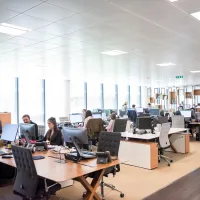Research centre
Centre for Inclusive and Sustainable Entrepreneurship and Innovation (CISEI)

CISEI builds on an interdisciplinary collaborative foundation to understand sustainability holistically, to co-create knowledge and value for a range of stakeholders, including individuals, communities and organisations.
Part of
Business




